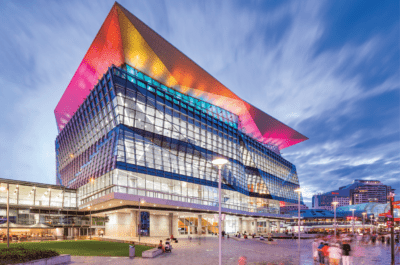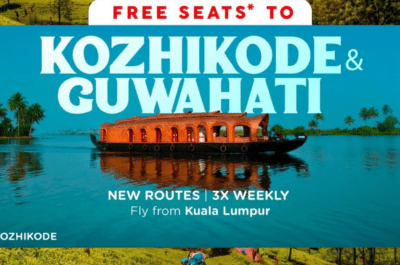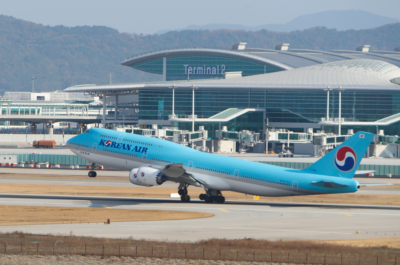Premium air travel is on the rise according to a new study from the GBTA Foundation, the education and research arm of the Global Business Travel Association (GBTA). The study, “Consumer Choice in Premium Air Travel”, finds that Asia will lead the way as 42% of premium travelers in that region plan to fly premium more over the next twelve months, with another 40%…

Premium air travel is on the rise according to a new study from the GBTA Foundation, the education and research arm of the Global Business Travel Association (GBTA). The study, “Consumer Choice in Premium Air Travel”, finds that Asia will lead the way as 42% of premium travelers in that region plan to fly premium more over the next twelve months, with another 40% planning to fly the same amount as last year. In Europe, 83% of respondents plan to fly premium the same or more over the next twelve months (with 27% planning to fly more) and in the U.S., 81% plan to fly premium the same or more (with 21% planning to fly more). Data shows that travelers who make purchasing decisions based on aircraft type prefer Boeing airplanes nearly two to one over its competition in the long-haul segment.
The study also analyzed consumer preferences and motivations for premium air travel in order to create a robust profile of premium travelers. These profiles were formulated by looking at responses from more than 1,650 travelers from the U.S., European and Asia-Pacific regions that have flown international long-haul travel in premium class over the last 12 months. Long-haul refers to a one-way flight of at least six hours in duration. The study was conducted with support from Boeing Commercial Airplanes.
Understanding Today’s Premium Traveler
The study identifies three categories of premium air travelers:
– “Safe and Sounders” – Travelers who are risk averse and want airlines with a strong safety record and a history of financial stability. They prefer airlines that provide high quality in-flight products and services.
– “Experiencers” – This group is slightly younger (39 years old versus 47). They are excited about travel and look for airlines to enhance the experience. They are likely to change airlines frequently and enjoy flying the flagship airline of their destinations. Experiencers also seek value and are likely to book based on price.
– “Loyalists” – These travelers enjoy the treatment that comes with frequently flying the same airline. They like to build frequent flyer points, enjoy flying their national airline and want to be recognized with upgrades and special treatments. In general, Loyalists are less motivated to choose an airline based on amenities and safety record.
Premium Travelers’ Premium Choices:
– 84% of premium travelers rank an airline’s reputation and safety record as the most important motivating factor for choosing an airline.
– Two-thirds (67%) rank the availability of lie flat seats as being an important factor.
– Only half (51%) say that the availability of a pre-flight lounge is a determining factor.
– Less than half (47%) are motivated by the quality or selection of in-flight entertainment.
The technological amenities travelers are looking for include: Wi-Fi (51%), AC power (48%) and audio/visual capacity (45%). Somewhat surprisingly, the ability to use cell phones including voice (32%) and excluding voice (26%) do not rank very highly as determining factors.
Regional Differences
The study also found a number of notable differences among premium travelers around the world in terms of the main factors that drive their airline choice:
– Asian travelers: Superior food and beverage options and high-tech amenities.
– U.S. travelers: Availability of a premium class of service.
– European travelers: Availability of a pre-flight lounge as well as new/modernized aircraft.
Notably, the study finds that premium travelers based in Asia are very different from their European and American counterparts. They tend to be younger, which will likely lead to continued growth in the premium long-haul sector. In addition, their employers’ travel management policies are more lenient. Finally, they are more technologically savvy, being more likely to use social media in planning and booking travel (48%), compared to about 10% of U.S. travelers, as well as to choose airlines based in part on high tech amenities.
“As we’ve seen the travel industry slowly recover after the Great Recession, the comeback in premium class has been driven primarily by business travel,” said Joe Bates, director of Research, GBTA Foundation. “This study provides a valuable perspective on the profile of the premium traveler and offers insight into the role of corporate travel policy in facilitating effective premium travel. It is vital for both travel suppliers and travel managers to become better informed about the premium traveler, especially as these travelers have become increasingly important to business travel growth overall.”
Vicky is the co-founder of TravelDailyNews Media Network where she is the Editor-in Chief. She is also responsible for the daily operation and the financial policy. She holds a Bachelor's degree in Tourism Business Administration from the Technical University of Athens and a Master in Business Administration (MBA) from the University of Wales. She has many years of both academic and industrial experience within the travel industry. She has written/edited numerous articles in various tourism magazines.














































![[PR] PR_Ascott and Vimut Hospital_2024](https://www.traveldailynews.asia/wp-content/uploads/2024/04/PR-PR_Ascott-and-Vimut-Hospital_2024-400x265.jpg)


















